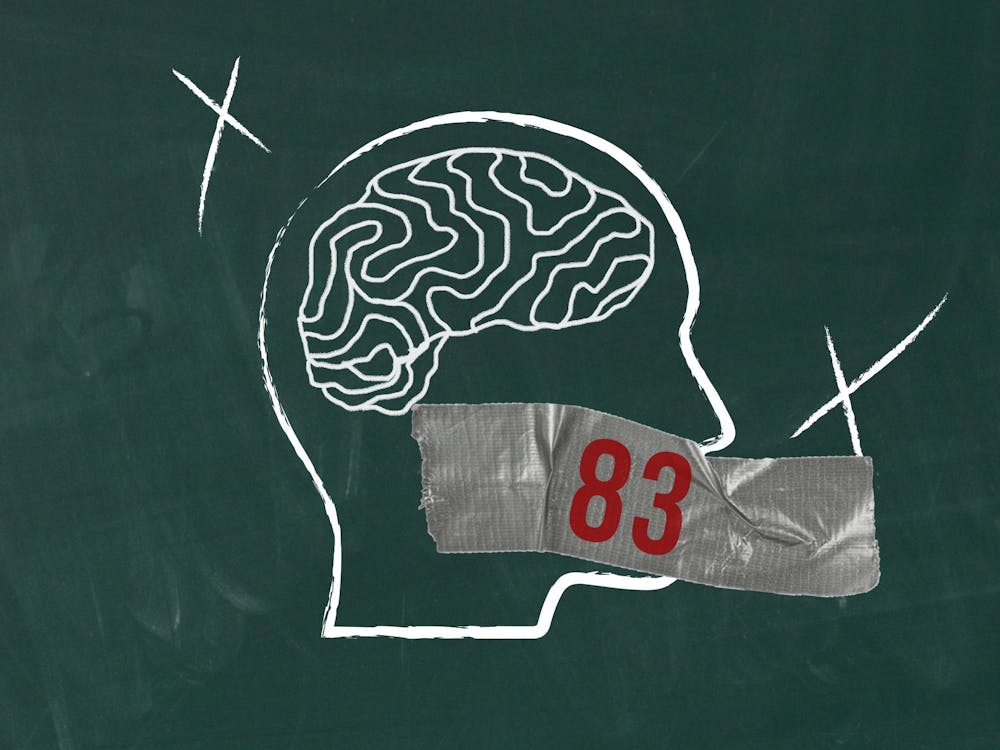Students, faculty and staff at Miami University have mixed feelings as Ohio’s Senate Bill 83 sits in the Senate Committee, looking for support to be released. If it passes, the bill will affect a number of Ohio universities that receive state funding and may lead to numerous changes in higher education throughout the state.
Line 229 of the bill states that universities can’t “… endorse, oppose, comment, or take action, as an institution, on the public policy controversies of the day, or any other ideology, principle, concept, or formulation that requires commitment to any controversial belief or policy, specified concept, or specified ideology …”
Jerry Cirino (R-Kirtland), the sponsor of the bill, has worked on education bills in the past, including a large oversight bill in the Department of Education, and serves as the chair of the Workforce and Higher Education Committee.
In the bill, Cirino defines controversial beliefs or policies as, “any belief or policy that is the subject of political controversy, including issues such as climate change, electoral politics, foreign policy, diversity, equity, and inclusion programs, immigration policy, marriage, or abortion.”
One of the bill’s main goals is to set limits on diversity, equity and inclusion (DEI) relating to faculty, staff and students to promote individual intellectual diversity.
The legislation would also regulate lecture content for faculty and eliminate certain classes and programs altogether. However, Anne Whitesell, an assistant professor of political science at Miami, fears the passing of this bill could mean more than the removal of courses.
“[The bill] would take away a lot of the independence and autonomy that universities have,” Whitesell said. “Some of these provisions would require extra staffing or extra resources, and as far as I've seen in the bill, there are no provisions to provide extra funding, making this a sort of unfunded mandate.”
The bill would restrict the discussion of widely-debated issues within classes and could prohibit lecturers from taking a political stance.
“In a gender studies class, gender politics and race are both often-talked-about topics, which both [would be] considered a no-go by this new bill,” Whitesell said.
Beyond the scope of politics and staff, the bill’s consideration of “controversial topics” could also limit student studies at Miami. Junior biology, neuroscience and premedical studies major August Ogunnowo worries about the effect this bill will have on their educational opportunities.
“This bill restricts education, in my opinion, because you’re stopping people from talking about these controversial topics,” Ogunnowo said. “You say you want students to have intellectual diversity, but then you recommend American studies and remove the ability to talk about other issues. That’s not intellectual diversity.”
Ogunnowo expressed further concern about the limitations it creates on students’ speech and believes it creates a destruction of diverse ideals, despite the premise of the bill.
Enjoy what you're reading?
Signup for our newsletter
“No one is forcing students and people to believe what they want to believe,” Ogunnowo said. “There’s no punishment for free speech currently. We can no longer advocate for these issues because they feel it’s controversial.”
Another stipulation in the bill requires students seeking a bachelor’s or associate’s degree to take three credit hours in an American government and history course. Students will then be required to read the U.S. Constitution, the Declaration of Independence, five of the Federalist Papers (determined by department chairs), the Emancipation Proclamation, the Gettysburg Address and the Letter from Birmingham Jail by Martin Luther King Jr.
Additionally, the bill lists who can and cannot go on strike, including faculty at institutions like Miami.
In an email to The Miami Student, Alecia Lipton, director of media and communications, wrote the university is preparing to accommodate accordingly with the outcomes of the proposed bill.
“Miami University is reviewing the legislation and will work with the legislature and the Inter-University Council (IUC) of Ohio, an association that includes Ohio's 14 public universities, to determine how Senate Bill 83 would affect the University and those that we serve,” Lipton wrote. “The university is currently conducting accreditation and fiscal analyses of the proposed bill that will be sent to the Ohio Legislative Service Commission.”
As discussions around the bill continue, Ogunnowo questions what value a liberal education will hold with these limits. She believes this bill brings far more harm to discussion and a free environment.
“It’s not actually for the benefit of students,” Ogunnowo said. “It’s just another way to micromanage our topics.”




